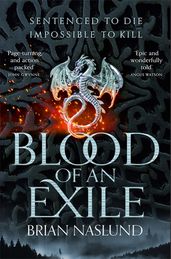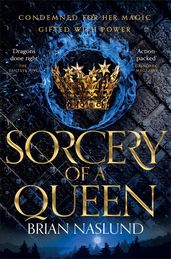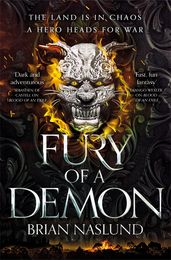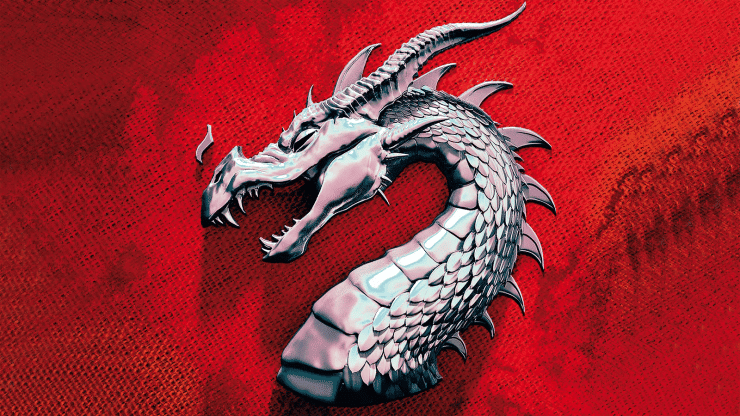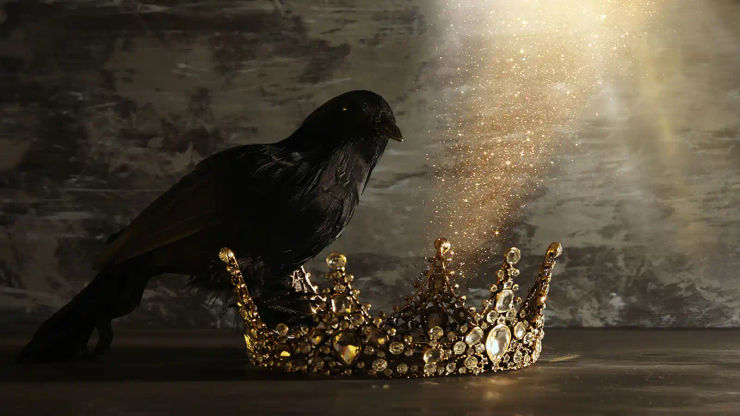Do outsider characters offer respite from our desire to fit in?
Fantasy, for many, is a genre synonymous with escapism. But here, author Brian Naslund explores the additional respite that outsider characters can offer in a socially anxious world.

Brian Naslund, author of the Dragons of Terra series, explores the archetype of the grizzled outsider, the eternal Aragorn who stalks our imaginations in solitary splendour. Naslund has been drawn to such characters since he was a book-fixated child, and now outsiders take centre stage in his own writing. But what is it about these unsociable exiles that appeals to him, and to so many of us? Naslund suggests that outsider characters allow us to dream of rebellion and breaking societal boundaries, even as we conform.
Looking for more fantasy? Discover our edit of the best fantasy books, here.
The first fantasy ‘outsider’ that I fell in love with was Aragorn from The Lord of the Rings.
I was eleven or twelve years old, and staying up past my bedtime to read in secret. I remember learning about Aragorn’s self-imposed exile and life spent roaming the wilds as a grizzled outcast, and being immediately drawn to him. I didn’t spend much time evaluating the allure of outsiders at the time, but my love for them has continued ever since.
And I’m definitely not alone.
From Drizzt to Elric of Melnibone, Sandor Clegane to Logen Ninefingers, and Maia Drazhar to Baru Cormorant, the annals of beloved fantasy characters are packed with outsiders.
So, what’s the appeal of these misanthropes?
I will admit, the initial aspect that drew me to Aragorn was simple escapism. The night I first read about him, I think that I had a math’s test the next day, which I was quite nervous about. The notion of abandoning my future as a middle-schooler to roam the woods beyond my backyard hunting monsters was very compelling. (When the movies came out a few years later, I fell in love all over again, but a lot of that probably has to do with Viggo Mortensen’s amazing portrayal of him.)
However, there’s something beyond that knee-jerk ‘if-you’re-apart-from-the-world-you-don’t-need-to-worry-about-it’ attraction. If I’m being honest with myself, I’ve spent a large portion of my life being the opposite of an outsider. I’ve been trying to fit in.
‘If I’m being honest with myself, I’ve spent a large portion of my life being the opposite of an outsider. I’ve been trying to fit in.’
As a kid, I might have play-acted being a brave iconoclast warrior in the privacy of my bedroom, but as soon as I was out on the playground with other kids all I wanted to do was avoid getting picked last for kickball teams, and sidestep any kind of behaviour that might bring unwanted attention.
As I got older, my desire to fit in may have gotten a bit less frantic, but it didn’t go away. During my first year at university, I must confess that I went through great and often ridiculous lengths to make sure I always had someone familiar to sit with when I went to the dining hall for dinner. I was terrified by the prospect of eating a slice of pizza alone. For shame!
Even now, as a fully grown man, I succumb to the pressures of fitting into society on a regular basis, whether that’s framing my words carefully in a business meeting or simply buying a coat that fits into the ‘Colorado Outdoorsy’ mould.
I don’t see these behaviours as flaws. It’s just a part of life. But because most of us must succumb to the pressure of conformity some of the time, it can be incredibly refreshing to read about a character who – in addition to slaying dragons or casting magical spells – simply doesn’t care about fitting in. Not at all.
‘. . . it can be incredibly refreshing to read about a character who – in addition to slaying dragons or casting magical spells – simply doesn’t care about fitting in. Not at all.’
People with a little less social anxiety probably have different reasons for loving outsiders, but that’s a big part of mine.
Of course, outsiders also wield extremely valuable currency from the perspective of a writer. Creating a character who doesn’t fit into a world is a fantastic way to explore the flaws and shortcomings of a society. A Brave New World is a classic example of this, and works on two levels. Bernard Marx functions as an outsider stuck inside the society, but not agreeing with it, and then John appears as the true ‘wild man’ outsider. Together, they offer a great criticism of the World State.
When I was writing the Dragons of Terra series, I chose to write the main character as an outsider for both reasons. By exiling Silas Bershad from the cultures of Terra, I could show the flaws in those cultures, both in their treatment of people and in their treatment of animals. But it also allowed me to create a guy who definitely wouldn’t be afraid to eat a slice of pizza alone in the dining hall, which was a lot of fun – even if there was a healthy dose of wish fulfilment thrown in there.
Blood of an Exile
by Brian Naslund
In Brian Naslund's must-read debut fantasy novel we meet Bershad, an adventurer sentenced to kill dragons for a living after being caught trying to assassinate a fellow noble. When the king who sentenced Bershad offers him a way out of his forced occupation and exile, Bershad sees a way to earn redemption, but it won't be easy. Blood of an Exile, the first book in the Dragons of Terra series is packed with adventure and of course, lots of dragons.
Sorcery of a Queen
by Brian Naslund
Dragon-slayers don't expect to survive to retirement age, but Bershad has unexpectedly thrived. Yet this very notoriety may be his downfall . . .
Hailed as 'a cinematic fantasy whirlwind', Sorcery of a Queen is book two in the adventurous Dragons of Terra trilogy by Brian Naslund.
Fury of a Demon
by Brian Naslund
The thrilling conclusion to the Dragons of Terra trilogy by Brian Naslund, Fury of a Demon sees the land of Terra in chaos as a hero heads to war.
Once invincible in battle, the very power Bershad wielded may be his undoing. Now, his humanity slips further away with every new wound. Terra's final hope against the terrifying skyships of Osyrus Ward, will Bershad become the nightmare, to save the world?
